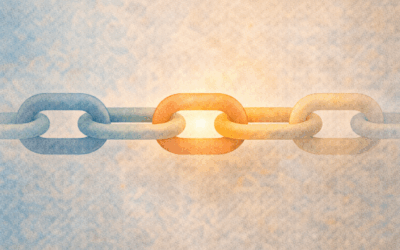
There are a lot of players and lot of interests in the decision-making that goes on in divorce. If you are working with a client, you might see any one of the following characteristics in their demeanor around decision making:
- Assuming: assuming anything without verifying, especially regarding motive, information and understanding.
- Abdicating: allowing others to make decisions for them, many times through the default of choosing not to do anything.
- Aggressive: going on the attack when they perceive a differing point of point of view.
- Adversarial: setting up a “me against them” for all decisions, even where there are shared interests and outcomes.
- Acrimonious: becoming bitter and hostile which shuts down any reasonable dialogue.
Now there may be good reasons to react in any of these ways based on the hazards that MIGHT be present:
- Bad egos
- Bad actors
- Bad Information
- Bad decisions and
- Bad understanding.
And the question becomes: How do you know which assumption to is true about any one of the motives or intentions or competencies of the players, including your client?
As they say, the best defense is a good offense. If the goal is to avoid the hazards and adopt a better demeanor around decision-making in divorce, you want to help your client to:
- Consciousness: develop their consciousness about what is most important, understand their own motives and align with their values and who they know themselves to be at their best.
- Consequences: to be clear about the outcomes they are pursuing in their decisions.
- Concessions: understand that there will be concession and trade-offs and decide what those can be.
- Clarify: clarify the information they are working with. Verify that it is accurate to the best of their ability.
- Confirm their understanding: confirm and verify what they heard is what was said and that it will pan out the way they are assuming it will.
These ABC’s of decision making can put the responsibility for being an empowered client back where it belongs. Your client is making decisions about his or her future. Getting their thinking organized and empowering themselves to understand how the pieces will fit together is what you can help them to do. When they understand how the information and decisions being made impact their desired outcomes, they are better prepared to do the best thy can do in the decision-making process. And you can be confident that you have done the best you can do to support them in that effort.
It’s easy as ABC!
For more insight into the biggest mistakes client make in divorce – mistakes over which they have full control, join us for our upcoming webinars on this topic and other divorce-related topics.
If you prefer to speak directly to one of our co-founders to answer any question you might have about divorce coaching, click here to find the best day and time to set up a one-on-one call.
Before, During, and After Divorce: Where Coaching Makes the Greatest Impact
Divorce is often described as a single event, but those who live through it know the truth: divorce is a process. One that begins long before any legal paperwork is filed and continues well after the final agreement is signed. At each stage, the right support can make...
Who Becomes a Divorce Coach and Why Their Background Matters
When people first learn about divorce coaching, one of the most common questions is, “What kind of background do you need to become a divorce coach?” The answer often surprises them. There is no single professional path that leads to becoming a CDC Certified Divorce...
The Missing Link in Divorce Support: Why Coaching Completes the Professional Team
Divorce is rarely just a legal event. It is emotional, financial, relational, and deeply personal — often all at once. While attorneys, mediators, financial professionals, and therapists each play critical roles, there is often a gap in the support system: someone...



